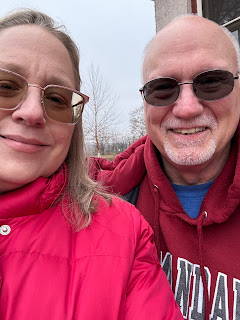Before reading this post, you might want to take a look at some other war-related posts on this blog:
For one of last year's #52Ancestors posts, I wrote about the longevity of the name Thomas Pearson. One of the Thomas Pearsons in question fought in the Revolutionary War. This particular Thomas Pearson, my GGGGG grandfather (and son of my GGGGGG grandfather, also Thomas Pearson) was born in Yorkshire, England, but records indicate that he emigrated from England in 1774, and by 1776 he was fighting for his new country's freedom.
Pearson was at the Battle of Waxhaws, also known as Buford's Massacre. Here, Buford's 3rd Virginia Detachment (somewhere between 350-380 Virginians) was decimated by Banastre Tarleton's forces. It was not much of a battle with the Patriots managing only a single volley before they were overcome by the British troops. Survivors of the battle also reported that the British even massacred men who were in the act of surrendering. Casualties (including killed, wounded, and missing/captured) totaled 316 for the Patriots. The British lost only 17. Thomas Pearson was among the wounded and was also captured. On one Sons of the American Revolution Membership Application, it states, "Prisoner till May, 1783. Thomas Pearson received 13 wounds; this and imprisonment brought on temporary derangement."
Thomas Pearson's last pension affidavit (November 1834) reads as follows: "Whereas it is represented to the General Assembly, that Thos Pearson, a soldier in the revolutionary war, belonging to the VA Line on continental establishment, and attached to the regiment commanded by Col. Abraham Buford, received in an action with the British troops, fought in SC in the month of May 1780, sundry wounds in his head and arms, which have rendered him, in his present advanced stage of life, (being sixty two years of age.) incapable of maintaining himself by labour." Thomas Pearson died 29 September 1835.




.jpg)

